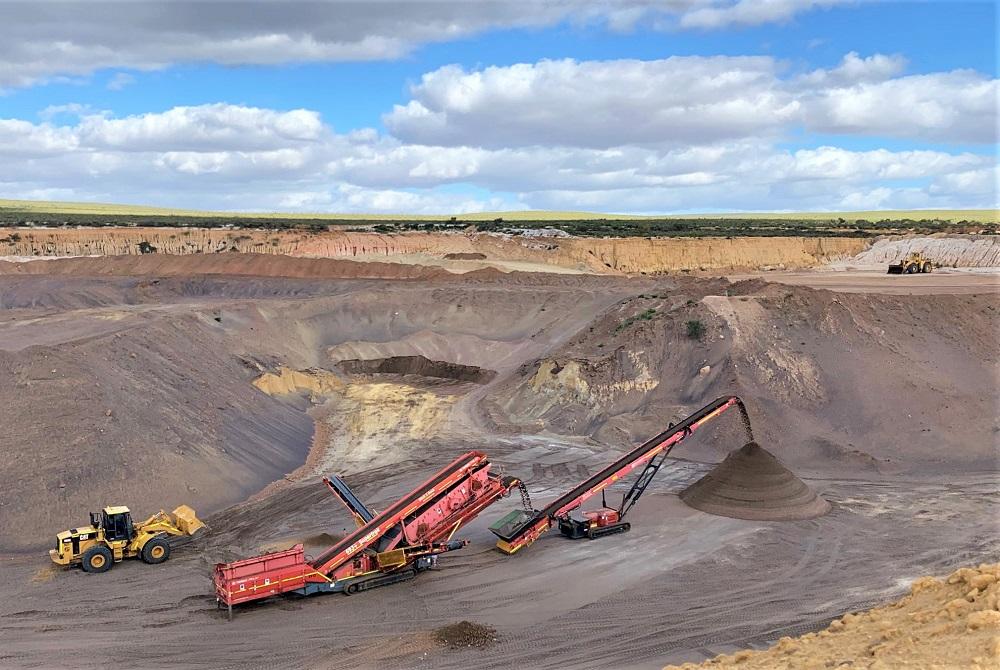
Despite the concerns about Australia’s dependency on others when it comes to rare-earth elements, we’re failing to search creatively for a solution.
Australia has long been dependent on goods manufactured overseas, but we continue to measure our economic performance by the volume and price of our natural resource exports. Our approach to rare earths is aimed at lessening dependency through mining and some value-add processing for export. But there are other opportunities for Australia to move up the rare-earths value chain. In addition to producing value-added oxides, metals and alloys, Australia could manufacture rare-earth magnets and other high-technology and high-value products. Reliable domestic supply will drive further high-value industries, such as electronics and defence applications.
Australia has significant reserves of critical minerals that are essential to manufacturing advanced technologies such as electric vehicles, mobile phones and renewable energy systems. Rare earths are a subset of critical minerals that are essential to our digital world. There’s 0.15 gram of palladium in an iPhone, 472 kilograms of combined rare earths in an F-35 jet, and four tonnes in a Virginia-class submarine.
Rare earths comprise the 15 elements in the lanthanide series. They are included in the US government’s 2018 list of 35 critical minerals along with other minerals such as palladium, lithium and manganese. Australia has the world’s sixth-largest reserves of rare-earth minerals and is the second-largest producer, but the bulk of our resource is largely untapped.
Despite opportunities for Australia to become a producer and manufacturer of critical minerals and rare-earths, the global market is dependent on China, which dominates supply chains with over 80% of the global rare-earth market. This positions China to build the economic power that could block Australian companies from competing internationally. Our dependency raises challenges for our national security, sovereignty and economic prosperity.
However, mining our rare-earth reserves is just one part of the picture, especially if Australia, in partnership with its allies, seeks to increase its resilience in the face of Chinese market dominance. Australia needs to extract itself from the old habit of exploiting our natural resources and sending them to production lines overseas only to buy back manufactured products through our imports.
This is not to say that Australia can or should be independent of the world. But we need to be more strategic about valuing and safeguarding what we have, and investing in smart, clean and innovative manufacturing. At the very least, we ought to consider what value we can add and then pursue it.
Whole-of-nation investment in innovation is needed for Australia to appreciate and harness our potential value-added contribution to the world given that our manufacturing base has been depleted and, in many cases, eliminated over time.
Both the opportunity and the challenge were identified in the Australian government’s 2019 road map for critical-minerals manufacturing, which noted that, given ‘most primary ores are shipped overseas for processing, Australia derives a small share of the potential overall benefit. Australia can capture greater benefit from these value chains by undertaking further value adding and manufacturing here.’
So, what represents the best opportunity for Australia to do more than dig up and export our sovereign resources? Every piece of technology in our digital world needs a power source, so we need to focus on manufacturing rare-earth magnets for niche applications. CSIRO analysis indicates that while Australia’s lithium exports in 2017 were worth $1.1 billion, that represented less than 1% of the global battery value chain.
Given the need to reduce the burning of fossil fuels, there will be increasing demand for electric vehicles to replace the estimated 1.4 billion cars on the world’s roads today and the 78 million new cars sold annually. The advantage of rare-earth magnets for electric vehicles is that they produce a magnetic field that is up to three times greater than the field produced by ferrite or ceramic magnets, making them much more powerful.
Tesla has a target to build 20 million cars a year by 2030, which would soak up around 50% of the world’s 2019 cobalt supply and 95% of the world’s supply of graphite. Recent forecasts suggest that demand for lithium for electric vehicles will increase from 25,000 tonnes in 2020 to 425,000 tonnes in 2030.
But the challenge isn’t just about access to processed minerals. Australia is very successful in downstream processing, and could be in manufacturing, but the government says industry needs to move up the value chain to take advantage of this opportunity. While battery cell manufacturing is in its early stages in Australia, and unlikely to be cost competitive against Chinese-produced cells on the world market without government intervention, a CSIRO report produced for the Future Battery Industries Cooperative Research Centre notes that Australia has an opportunity to manufacture for the local market and niche applications. It also suggests that ‘manufacturing in Australia will most likely fill niche applications based on geographic (hot climate) and strategic (defence) uses’.
US President Joe Biden’s administration has already recognised the opportunity. Its ‘green economy’ initiatives will drive aggressive plans for renewable energy development, smart grids and a large electric vehicle industry. The US renewables sector is expected to surpass the defence sector as a customer for critical minerals.
Over the past 18 months, policy discussions on ‘green’ steel (made using hydrogen, not coal) and national resilience reflect a change in government and consumer thinking. Manufacturers and consumers may indeed be open to paying a premium for environmentally sound and resilient products.
There’s still a long way to go before Australia develops the will to move up the rare-earth value chain. The evidence is clear—Make it happen, the government’s modern manufacturing strategy, mentions rare earths twice in 27 pages and only then in the context of processing them for export.
Australia is not yet positioned to reap the full benefits of rare-earth export. What will it take to change the habits of a nation?